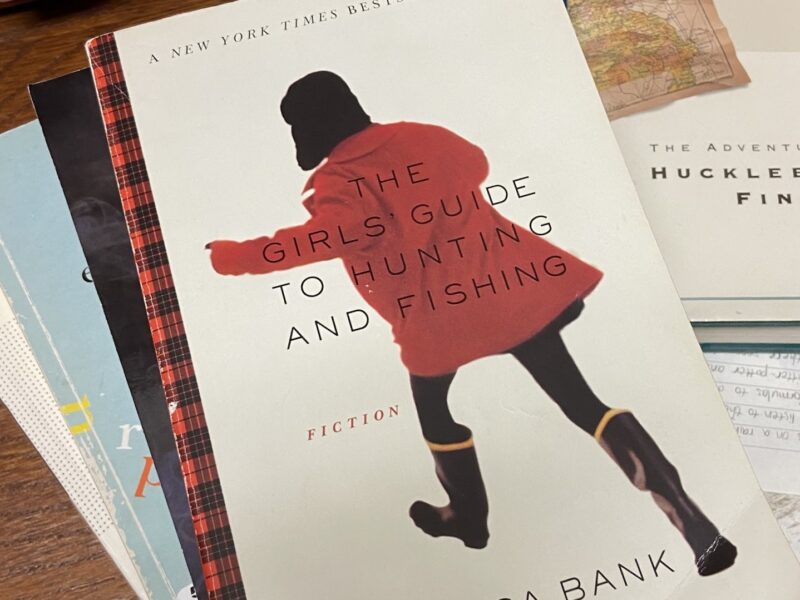Welcome to the hunting grounds—or New York (says Melissa Bank, indirectly, through her epigraphs): where an aristocratic herd of blue blazers move along Park Avenue, Manhattan, and run in groups along the Hudson River…where finding a relationship is sort of like lying in wait by a rushing river, in hopes of ensnaring a fish, then analyzing their qualities as a specimen, and if you are charmed (and can charm it), you just might let them stay in your life. One of them, a senior editor, might live in a luxurious brownstone in West Village, and sort of command the New York literary scene at his fingertips. He also might be twice your age, and in fact, have a daughter your age. In navigating all of this, some kind of guide would be extremely helpful.
Jane Rosenal, originally from Philadelphia, is the young woman, the fixed center, and transparent focus of this short-story collection. I say transparent because Bank somehow makes the stories feel like they’re about anything but Jane. Water filters, for instance. How they filter out the toxic levels of lead that permeate the New York water. How Oberlin College is sort of considered a losers’ club in the city. How you must choose between shopping at Loehmann’s in the Bronx versus Saks, and what the resulting silk dress says about you. The kinds of people you must watch out for, seasoned hunters on the scene, intent on capturing their prey. In the final story that gives this collection its name, Jane has begun to rely on two imagined friends on her shoulder, “Guides” that whisper in her ear about how to go about hooking and catching a man, and making him stay—sort of like successfully capturing prey in a hunting venture.
I don’t think I’ve ever seen a short story collection that reads so much like a novel, except that there are these gaps in between the stories, which move temporally and spatially through phases of Jane’s life: childhood, then young adulthood. Loveladies, New Jersey, then the bustle of Manhattan. Somewhere along the path, our point of view aligns with Jane’s like a compass. Jane almost becomes a transparent medium, as I said—the eyes of the inexperienced “hunter” through which we view the world.
What’s one thing that you must know about guides, manuals, recipes? Or self-help books? Jane learns it by the end: you must learn how to shoot, or cast a line, or return calls and make rejections—by your own hand. In the longest and perhaps the saddest story, “The Worst Thing a Suburban Girl Could Imagine,” there is a scene I love: Jane has lost her father to leukemia, and the next morning, has to go to work through the New York commute. Across the window of the gleaming neighboring building, Jane sees another woman in the office. For a terrific moment, she realizes that she is that random woman through the window to someone else. She is one of thousands. She is not the star editor, or the heartbreaker, or the person brilliantly developed in one sense that she hoped to become. This is strangely freeing. Bank paints this moment of discovery (which usually seems to happen on the cusp of early adulthood, one I’m starting to approach) as a liberation, and not a tragedy in any sense. Bank even gives a name to this new scene that now lies before you: “the rest of your life.”
“Today was the first day of the rest of my life,” says Jane. “It was okay. I think the second day of the rest of my life will be better.” You sort of let go of Jane then, watching her blend into the forest of people and subways and Fifth Avenues and whatnot, relinquishing the butterfly net that she’s been clutching so tightly in her hand.
